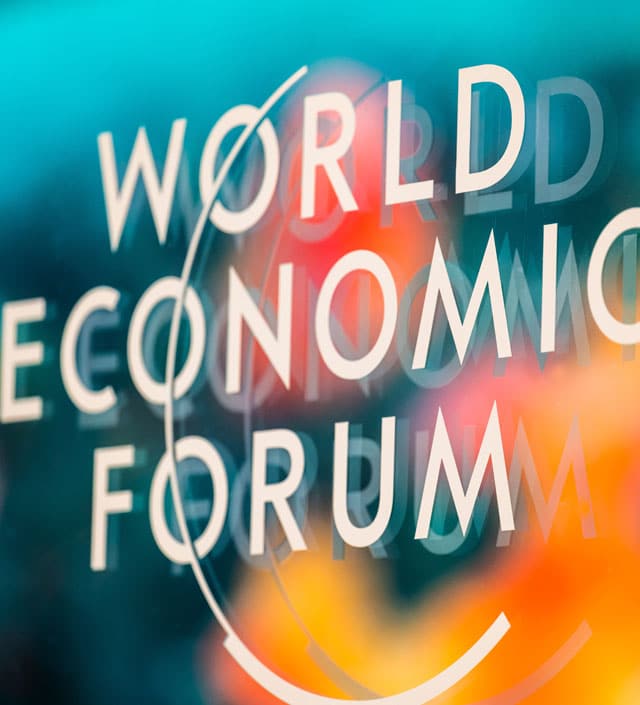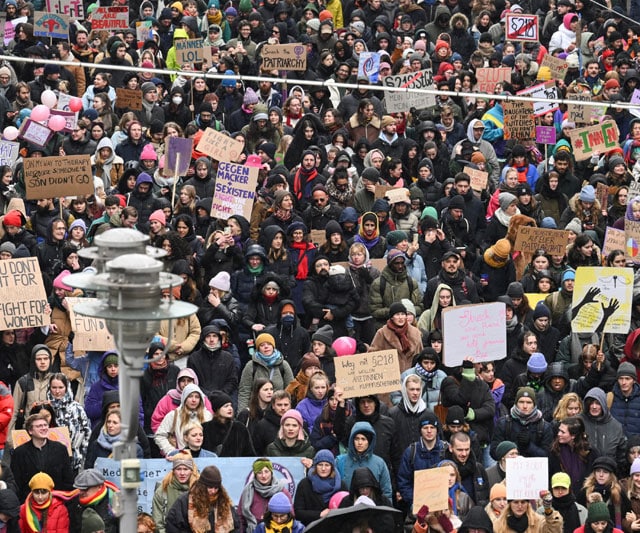Two-thirds of private and public sector chief economists surveyed by the World Economic Forum expect a global recession this year, with some 18% considering it “extremely likely” — more than twice as many as in the previous survey conducted in September 2022.
“The current high inflation, low growth, high debt and high fragmentation environment reduces incentives for the investments needed to get back to growth and raise living standards for the world’s most vulnerable,” WEF Managing Director Saadia Zahidi said in a statement accompanying the survey results at the group’s annual meeting in Davos, Switzerland.
The WEF’s survey was based on 22 responses from a group of senior economists drawn from international agencies including the International Monetary Fund, investment banks, multinationals and reinsurance groups.
Meanwhile, a survey of CEO attitudes by PwC released in Davos on January 16 was the gloomiest since the “Big Four” auditor launched the poll a decade ago, marking a significant shift from optimistic outlooks in 2021 and 2022.
Individuals gloomy too
Another global survey, by The Edelman Trust Barometer, found barely two in five people believe their families will be better off in the future. The survey, which for over two decades has polled the attitudes of thousands of people, found that economic pessimism was at its highest in some of the world’s top economies such as the United States, Britain, Germany and Japan.
It further confirmed how societies have been divided by the impacts of the pandemic and inflation. Higher-income households still broadly trust institutions such as government, business, media and NGOs. But alienation is rife among low-income groups.
“This has really shown the mass class divide again,” said Richard Edelman, whose Edelman communications group published the survey of over 32,000 respondents in 28 countries interviewed from Nov. 1 to Nov. 28 of last year.
“We saw it in the pandemic because of differential outcomes in terms of health, now we see it in terms of the impact of inflation,” he added.
Growth forecast slashed
The World Bank last week slashed its 2023 growth forecasts to levels close to recession for many countries as the impact of central bank rate hikes intensifies, Russia’s war in Ukraine continues, and the world’s major economic engines sputter.
Definitions of what constitutes recession differ around the world but generally include the prospect of shrinking economies, possibly with high inflation in a “stagflation” scenario.
On inflation, the WEF survey saw large regional variations: the proportion expecting high inflation in 2023 ranged from just 5% for China to 57% for Europe, where the impact of last year’s rise in energy prices has spread to the wider economy.
A majority of the economists see further monetary policy tightening in Europe and the United States (59% and 55%, respectively), with policy-makers caught between the risks of tightening too much or too little.
“It is clear that there is a massive drop in demand, inventories are not clearing up, the orders are not coming through,” Yuvraj Narayan, deputy chief executive and chief financial officer of Dubai-based global logistics company DP World told Reuters.
“There are far too many constraints imposed. It is no longer a free-flowing global economy and unless they find the right solutions it will only get worse,” he said, adding the group expects freight rates to drop by between 15% and 20% in 2023.
Avoiding layoffs
Few sectors expect to be totally immune.
Matthew Prince, chief executive of cloud services company Cloudflare Inc., said internet activity was pointing to an economic slowdown.
“Since New Year’s, when I catch up with other tech company CEOs, they’re like, ‘have you noticed the sky is falling?'” he told Reuters.
PwC’s survey found confidence among companies in their growth prospects dropped the most since the 2007-08 global financial crisis, although a majority of CEOs had no plans to cut the size of their workforce in the next 12 months or to slash remuneration as they try to retain talent.
“They’re trying to do cost reduction without human capital changes and large layoffs,” said PwC global chairman Bob Moritz.
Jenni Hibbert, a partner at Heidrick & Struggles in London, said activity was normalising and the executive search firm was seeing “a little less flow” after two years of strong growth.
“We are hearing the same mixed picture from most of our clients. People expect a market that’s going to be more challenged,” Hibbert told Reuters.
Aid cuts
Nowhere is the real-world impact of recession more tangible than in efforts to tackle global poverty.
Peter Sands, executive director of the Global Fund to fight AIDS, Tuberculosis and Malaria, said overseas development aid was being cut in budgets as donors started to feel the pinch, while recession would hit local health provision hard.
A common concern among many Davos participants was the sheer level of uncertainty for the year ahead — from the duration and intensity of the Ukraine war through to the next moves of top central banks looking to lower inflation with deep rate hikes.
The chief financial officer of one U.S. publicly traded company told Reuters he was preparing widely-varying scenarios for 2023 in light of economic uncertainty — in large part related to how interest rates will trend this year.
While there were few silver linings on the horizon, some noted that an all-out recession could give pause to the policy-tightening plans of the U.S. Federal Reserve and other major central banks that is making borrowing increasingly dear.
“I want the outlook to become a little weaker so that the Fed rates start going down and that whole sucking-out of liquidity by global central banks eases,” Sumant Sinha, chairman and CEO of Indian clean energy group ReNew Power, told Reuters.
“That will benefit not just India but globally,” he said, adding the current round of rate hikes was making it dearer for clean energy companies to fund their capital-intensive projects.
This article was provided by Reuters. Reporting by Mark John, Maha El Dahan, Jeffrey Daskins, Leela de Kretser, Divya Chowdhury and Paritosh Bansal; Editing by Alexander Smith.







